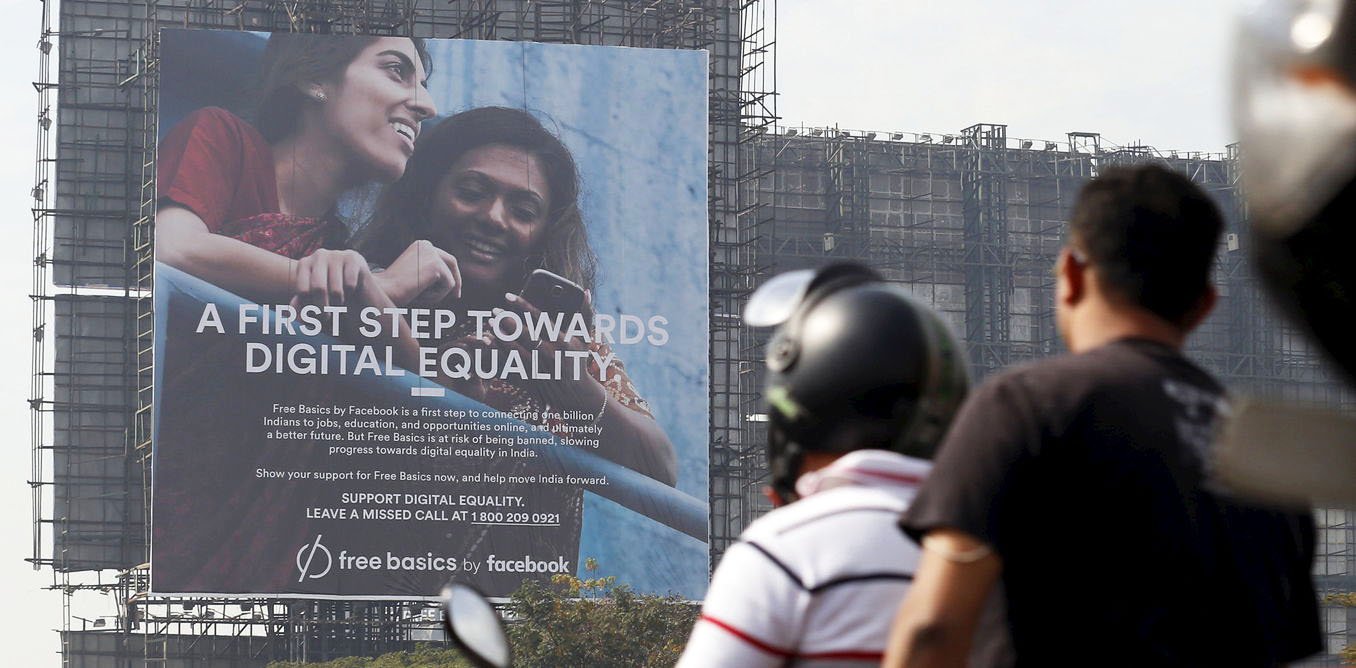India's telecom regulator bans Free Basics in the country

All the latest news, reviews, and guides for Windows and Xbox diehards.
You are now subscribed
Your newsletter sign-up was successful
India's telecom regulatory authority TRAI (Telecom Regulatory Authority of India) has effectively banned Free Basics in the country, following its verdict on differential pricing. Facebook's zero-rated service has been criticized by net neutrality advocates in recent months for providing free access to a limited set of services.
Facebook, for its part, tried to boost support for its service by aggressively marketing Free Basics in India over the last month following a ban by TRAI as the regulator deliberated over zero-rated platforms. Facebook's ad campaign led to over 11 million people responding to TRAI, but the regulator rejected them as the "majority of the individual comments received did not address the specific questions that were raised."
TRAI relied on comments from service providers and over 40 organizations around the country to come to a decision:
In India, given that a majority of the population are yet to be connected to the internet, allowing service providers to define the nature of access would be equivalent of letting TSPs shape the users' internet experience. This can prove to be risky in the medium to long term as the knowledge and outlook of those users would be shaped only by the information made available through those select offerings.It is argued that this will create an uneven playing field among content providers and service providers—large, well-established content providers and service providers or those that have the benefit of large networks will find themselves in a much stronger bargaining position as compared to new or smaller businesses. This may create significant entry barriers and thus harm competition and innovation.
The regulator said that giving one service provider the ability to offer discriminatory pricing based on the content could "compromise the entire architecture of the internet itself:"
A particular TSP (telecom service provider) which is offering data services to the consumer does not control the internet infrastructure in its entirety. It is dependent on several other networks to facilitate this task. Thus, allowing a TSP which is at one edge of the internet to charge differentially for data that it does not alone process, could compromise the entire architecture of the internet itself. Were other TSPs across multiple tiers allowed to do this, then the openness of internet as we know, would be altered. Allowing price differentiation based on the type of content being accessed on the internet, would militate against the very basis on which the internet has developed and transformed the way we connect with one another.
The new ruling prohibits any differential pricing for data-based services, making Free Basics illegal in the country:
No service provider shall offer or charge discriminatory tariffs for data services on the basis of content.No service provider shall enter into any arrangement, agreement or contract, by whatever name called, with any person, natural or legal, that has the effect of discriminatory tariffs for data services being offered or charged by the service provider for the purpose of evading the prohibition in this regulation.
From TRAI chairman Ram Sewak Sharma:
We have come out with a regulation which essentially mandates that no service provider shall charge differential pricing. The price should not be based on source, destination, type of content or the application. We have made exemptions in case of emergencies where differential pricing could be offered in case of grave emergencies.We have used the term discriminatory pricing instead of differential pricing because it in that paper had a particular context. What we are saying that packets on Internet, the pipes should not decide. Pipes should be agnostic to the packet.
Meanwhile, Mark Zuckerberg said that he was "disappointed" with TRAI's decision:
All the latest news, reviews, and guides for Windows and Xbox diehards.
While we're disappointed with today's decision, I want to personally communicate that we are committed to keep working to break down barriers to connectivity in India and around the world. Internet.org has many initiatives, and we will keep working until everyone has access to the internet.
Source: TRAI, Facebook; Via: India Today

Harish Jonnalagadda is a Senior Editor overseeing Asia for Android Central, Windows Central's sister site. When not reviewing phones, he's testing PC hardware, including video cards, motherboards, gaming accessories, and keyboards.
